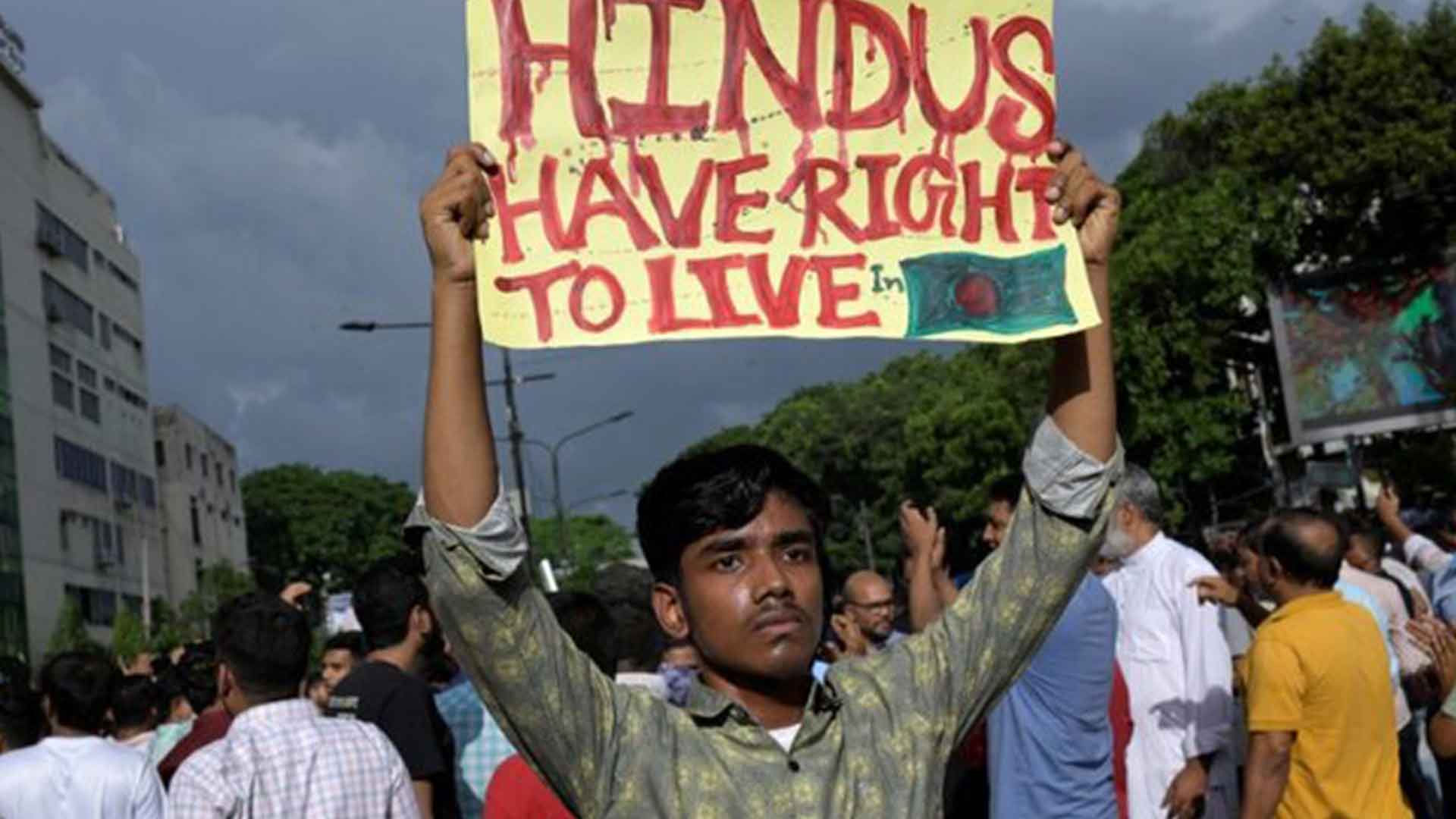A test for the interim government
Bangladesh’s Hindu minority, which represents around 8–10% of the country’s population, has suffered the brunt of sectarian violence and systemic discrimination for decades. The recent incidents have once again brought to light the danger that minority communities in the country are faced with. Now, it promises the establishment of an interim government with a plan since taking over after Prime Minister Sheikh Hasina was deposed in mid-2024 — that will restore conditions described by Balaji and prioritize the protection of all religious groups over all else.
A Canvas of Pain and Rage
Hindus in Bangladesh have faced episodic mob violence, often sparked by rumours or politically driven propaganda. These attacks often overlap with politically sensitive periods, like elections, or around major religious festivals such as Durga Puja, when public displays of faith render the community more visible and, tragically, more vulnerable.
In 2024 alone, those attacks accelerated, according to monitoring groups for minority and human rights. From August 4 to 20, more than 2,000 cases of communal violence were reported. According to the Bangladesh Hindu Buddhist Christian Unity Council, there were 174 of those targeted attacks in the second half of the year, with twenty-three people dead. By December, there were over 2,200 recorded incidents of violence against Hindus and other minorities.
The Government’s Response
Realising the gravity of the situation, the interim government, headed by Nobel laureate Professor Muhammad Yunus, made an early public pledge to protect all minority communities and ensure religious freedom. On August 13, 2024, Yunus pledged to protect the human rights, freedom of expression and freedom of religious practice of all communities during his administration, speaking directly to the Hindu community.
To put these words into action, the government:
Tightened security at numerous Hindu temples and religious functions.
There were education programs in the community for interfaith dialogue.
Deployed police and took legal action against incidents in a timely manner.
Admitted eighty-eight instances of communal violence that have taken place since they assumed power.
Although the government has focused on change, critics say more must be done. Human rights organizations like Amnesty International have demanded a systemic overhaul, reparations for the families affected and a judicial process that will hold them accountable and prevent future violence.
Durga Puja: A Litmus Test
One of the biggest tests for the interim government came during Durga Puja, the country’s biggest Hindu festival. Traditionally a period of joy and celebration, it has also become a flash point for communal tensions. But in 2024, the festival passed with fewer incidents than past years, a potential indication that early intervention efforts by the new administration are paying off.
A Long Road Ahead
The interim government’s proactive approach has drawn praise from many, but ensuring lasting peace and coexistence will demand ongoing commitment. Religious tolerance in Bangladesh is not only a national issue, it is also an international issue. Nearby India and international rights organizations are still monitoring the situation.
The regime’s treatment of Hindu minorities will continue to be a barometer of its credibility. Whether these early efforts lead to institutionalization or die with the next political transformation is an open question. Bangladesh is at a crossroads: how the most vulnerable citizens are treated today will determine the strength and character of Bangladeshi democracy for years to come.

